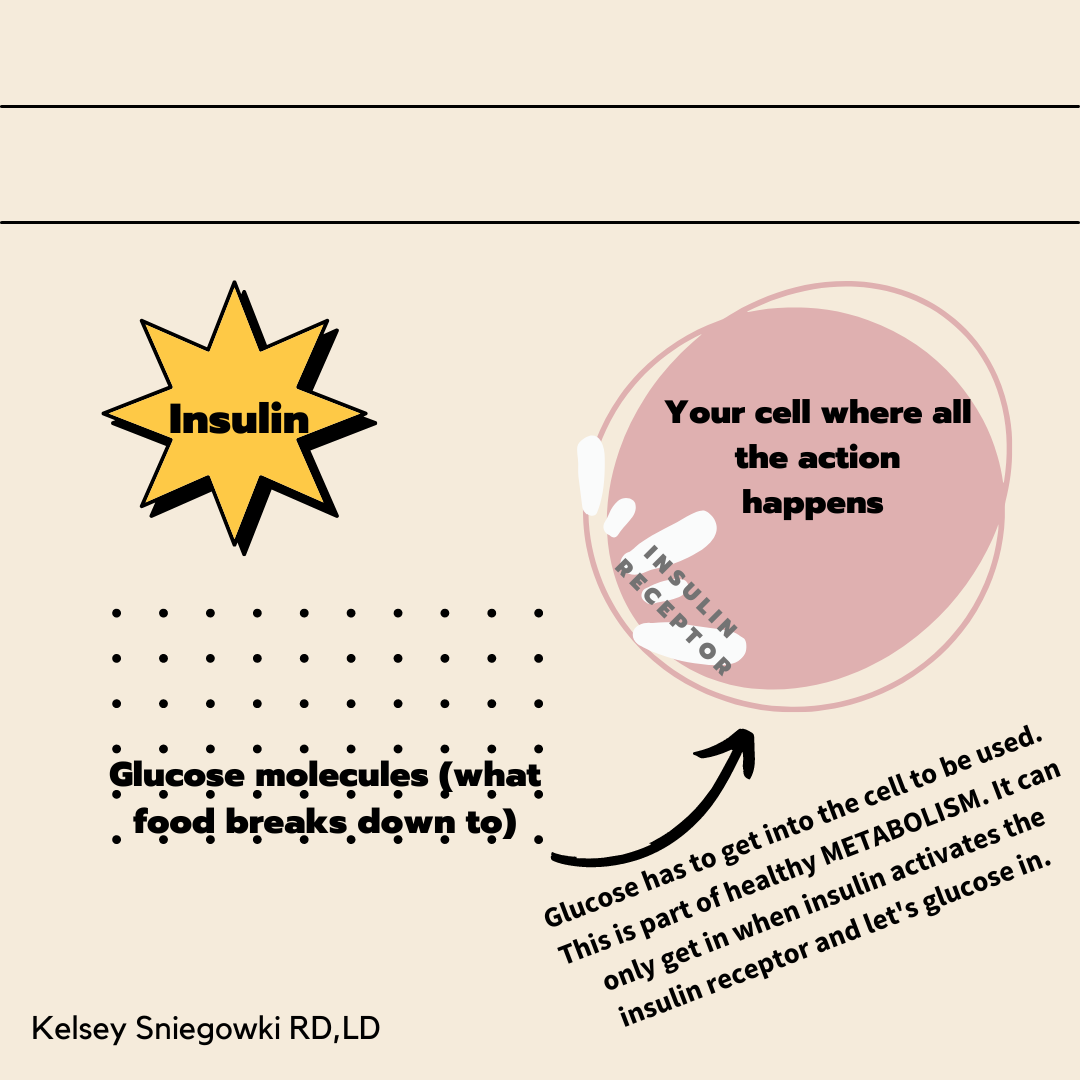Insulin Resistance: The Reason for Weight Gain
weight loss, weight gain, insulin resistance, insulin sensitivity, metabolism health, metabolism health.
In school, insulin resistance was typically only talked about when we were on the diabetes chapter. I honestly thought high insulin was only a worry for pre-diabetic or diabetic patients, but really it applies to everyone. It’s a hormone we all produce, and anyone can experience negative impacts from high levels even without the diabetes diagnosis.
Now, fast forward to when I started practicing functional nutrition and learned how important insulin is for overall metabolic health. It is a standard test for my clients and something I like to monitor.
What is INSULIN?
Insulin is an anabolic hormone meaning it builds things UP. It is really great for building muscle, but not so great when you’re trying to lose weight because it also promotes fat storage. I don’t want to demonize this hormone because we do need it to be healthy. It only becomes a problem when it is too high and paired with insulin resistance (which they typically go hand-in-hand).
What is INSULIN RESISTANCE?
Insulin resistance is when the receptor on the cells are not responding to insulin when it comes knocking to let glucose in. You may have heard of the key and lock analogy for insulin and glucose. Insulin is the key to unlock the door for glucose to get into the cell. The keyhole is the receptor on the cell and when it won’t respond to the key (insulin), we get high levels of insulin and glucose in the blood. This is a problem.
And as annoying as it is, insulin resistance is actually the body’s way of trying to send a signal to you that something isn’t right. It’s part of the alarm system that we need to listen to.
What CAUSES insulin resistance?
External and internal stress
Nutrition — macro and micronutrient balance
Lack of strength training and smart movement
Too much exercise
Long periods of sitting
Screen time
Poor circadian rhythm
Mineral status
Over eating or under eating
So what can we do about it? It depends on each person because some people may not be exercising enough while others exercise too much, for example. In general these are my recommendations to increase insulin sensitivity (and decrease resistance):
Strength training 4-5 times a week
Decrease intense cardio (I don’t recommend it daily)
Daily mineral mock-tail (I also recommend testing your minerals)
Getting outside a few times a day to see the sun (even if it’s cloudy)
Consistent bed time and wake time
Less screen time
Tracking food to make sure you are eating enough nutrient dense foods
Managing stress and being honest about how much stress impacts you daily
I also highly recommend getting your insulin tested at least once a year. If you find you have high insulin, I would test every 6 months until the problem as resolved. This helps monitor your progress and listen to what your body is trying to tell you. If you do have high insulin, don’t stress! If you are consistent with the tips listed above, I promise you will see improvements.

